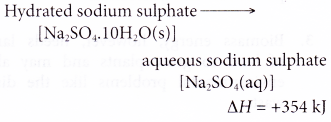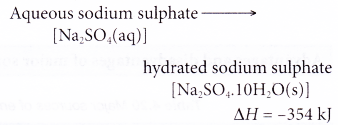What are the Sources of Energy?
If energy can neither be created nor destroyed, we should have no worries! We should be able to perform endless activities without thinking about energy resources then why we speak to save energy ?
Its because energy from the usable form, is dissipated to the surroundings in less usable forms. Hence, any source of energy we use, to do work, is consumed and cannot be used again.
Good Sources of Energy
A good source of energy would be one
- Which would do a large amount of work per unit volume or mass,
- Be easily accessible,
- Be easy to store and transport, and
- Economical.
Renewable and Non- Renewable Resources
Natural resources can be classified into the renewable resources and non-renewable resources.
The resources which have the capacity or ability to reproduce or renew quickly are called renewable resources. They include solar and wind energy, water, soil, forests, etc. Some of the renewable resources can be destroyed due to careless use.
The non-renewable resources are limited in reserves and it may take thousands of years to renew them. For example, coal or petroleum if taken out completely, may take millions of years to produce them.
People also ask
- What are the Non Conventional Energy Resources?
- What are the Conventional Energy Resources?
- How electricity is generated and transmitted?
- Advantages and Disadvantages of Electricity Generation
- What is Nuclear Energy?
- What is nuclear fission and how does it occur?
- How is energy released in a nuclear fusion reaction?
- What happens in a nuclear chain reaction?
- How does a nuclear power plant works?
- What are the pros of nuclear energy?
- What are the disadvantages of using nuclear energy?
- Importance of Proper Management of Radioactive Substances
Sun “The Ultimate Source Of Energy”
The source of the large amount of solar energy is due to fusion of lighter nuclei. About 90 percent of the solar mass is composed of hydrogen and helium and rest 10 percent contains other elements. The temperature of the interior of the sun is estimated to be about 2 × 107 K.
The nuclei of hydrogen fuse together in the sun’s interior to produce helium and a huge amount of energy is released. It is estimated that 1g of hydrogen produces 620,000 million joules of energy.
The fusion process in the sun can be described by the equation.
\(4_{1}^{1}H\text{ }\to \text{ }_{2}^{4}He\text{ + 2 }_{+1}^{0}e\text{ + Energy}\)
- The sun can provide us with inexhaustible solar energy that comes from nuclear fusion occurring inside the sun.
- The energy radiated from the sun’s surface in one year is equivalent to 250 thousand million million million tonnes of petroleum. If we could harness the solar energy on earth, we would have solved our energy problem.
- However, we make very little direct use of solar energy. This is because technology has not yet provided an economical method of transforming solar radiation into usable energy.
- Solar cells are still very expensive and inefficient. Furthermore, sunlight is intermittent and unreliable in many areas. The development in the storage of solar energy may help us solve the problem.
- The knowledge of thermochemistry can help us store solar energy.
(a) Ionic hydrates such as hydrated sodium sulphate, [Na2SO4.10H2O(s)] can be used to store solar energy.
(b) When the hydrates are warmed by sunlight to over 32°C, the three moles of ions dissolve in the ten moles of water in an endothermic process.

(c) When cooled below 32°C after sunset, the solution recrystallises, releasing the absorbed energy.

Fossil fuels
- Fossil fuels are most widely used because they are very convenient to use and have relatively high fuel values. But they are non-renewable and can cause environmental problems like the greenhouse effect and acid rain.
- We can use generators and engines to harness heat energy from fossil fuels.
- It is estimated that fossil fuels will be depleted in another 10 years. Thus, we need to find alternative energy sources.
Water
- With the use of hydroelectric power stations, we can harness hydroelectric energy from water.
- Hydroelectric energy is clean, renewable, convenient and economical to use.
- Unfortunately, hydroelectric energy is limited in its location. It needs high cost of construction at the beginning stages and sometimes vast areas of land are needed, and thus might cause destruction of the surrounding environment.
Biomass
- By using generators and engines we can harness biomass energy.
- We can obtain biomass energy from either plants or droppings of animals. Palm oil, for example, is used to make biodiesel which can be used to power cars and generators.
- Biomass energy, however, needs large areas of land to grow plants and may also cause environmental problems like the disposal of waste.
Radioactive substances
- By using nuclear fission and nuclear fusion, we could obtain enormous supply of nuclear energy from radioactive substances like uranium and plutonium.
- The heat given out during controlled nuclear fission and fusion can be used to generate electricity.
- Nuclear energy is non-renewable and is very destructive if a nuclear accident occurs. Furthermore, we will face problems of disposing the nuclear wastes.
Other energy sources
- Other energy sources that we can use are wind, tidal, geothermal, chemical fuel cells and hydrogen from the electrolysis of sea water.
- Scientists and engineers are actively seeking new energy sources as the earth has only a limited supply of fossil fuels which will run out soon.
- We must learn to use and conserve our finite energy resources more wisely and more efficiently.

Environmental Consequences
Exploiting any source of energy disturbs the environment in some way or the other. In any given situation, the source we would choose depends on factors such as the ease of extracting energy from that source, the economics of extracting energy from the source, the efficiency of the technology available and the environmental damage that will be caused by using that source. Research continues in these areas to produce longer lasting devices that will cause less damage throughout their life.
Saving Energy Resources
we cannot depend on the fossil fuels for much longer. Such sources that will get depleted some day are said to be exhaustible sources or non-renewable sources of energy. On the other hand, if we manage bio-mass by replacing the trees we cut down for fire-wood, we can be assured of a constant supply of energy at a particular rate. Such energy sources that can be regenerated are called renewable sources of energy.
Renewable energy is available in our natural environment, in the form of some continuing or repetitive currents of energy, or is stored in such large underground reservoirs that the rate of depletion of the reservoir because of extraction of usable energy is practically negligible.